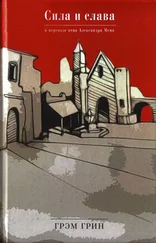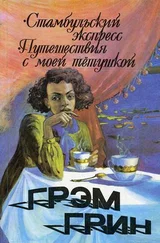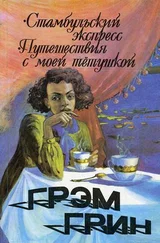Грэм Грин - The Comedians
Здесь есть возможность читать онлайн «Грэм Грин - The Comedians» весь текст электронной книги совершенно бесплатно (целиком полную версию без сокращений). В некоторых случаях можно слушать аудио, скачать через торрент в формате fb2 и присутствует краткое содержание. Год выпуска: 1966, Жанр: Классическая проза, на английском языке. Описание произведения, (предисловие) а так же отзывы посетителей доступны на портале библиотеки ЛибКат.
- Название:The Comedians
- Автор:
- Жанр:
- Год:1966
- ISBN:нет данных
- Рейтинг книги:3 / 5. Голосов: 1
-
Избранное:Добавить в избранное
- Отзывы:
-
Ваша оценка:
- 60
- 1
- 2
- 3
- 4
- 5
The Comedians: краткое содержание, описание и аннотация
Предлагаем к чтению аннотацию, описание, краткое содержание или предисловие (зависит от того, что написал сам автор книги «The Comedians»). Если вы не нашли необходимую информацию о книге — напишите в комментариях, мы постараемся отыскать её.
The Comedians — читать онлайн бесплатно полную книгу (весь текст) целиком
Ниже представлен текст книги, разбитый по страницам. Система сохранения места последней прочитанной страницы, позволяет с удобством читать онлайн бесплатно книгу «The Comedians», без необходимости каждый раз заново искать на чём Вы остановились. Поставьте закладку, и сможете в любой момент перейти на страницу, на которой закончили чтение.
Интервал:
Закладка:
Chapter III
1
FROM time to time in my life I had found it necessary to provide a curriculum vitae. It usually began something like this. Born 1906 at Monte Carlo of British parents. Educated at the Jesuit College of the Visitation. Many prizes for Latin verse and Latin prose composition. Embarked early on a business career … Of course I varied the details of that career according to the recipient of the curriculum.
What a lot too was left out or was of doubtful truth in even those opening statements. My mother was certainly not British, and to this day I am uncertain whether she was French — perhaps she was a rare Monegasque. The man she had chosen for my father left Monte Carlo before my birth. Perhaps his name was Brown. There is a ring of truth in the name Brown — she wasn't usually so modest in her choice. The last time I saw her, when she was dying in Port-au-Prince, she bore the name of the Comtesse de Lascot-Villiers. She had left Monte Carlo (and incidentally her son) hurriedly, soon after the Armistice of 1918, with my bills at the college unsettled. But the Society of Jesus is used to unsettled bills; it works assiduously on the fringe of the aristocracy where returned cheques are almost as common as adulteries, and so the college continued to support me. I was a prize pupil, and it was half expected that I would prove in time to have a vocation. I even believed it myself; the sense of vocation hung around me like the grippe, a miasma of unreality, at a temperature below normal in the cool rational morning but a fever-heat at night. As other boys fought with the demon of masturbation, I fought with faith. I find it strange to think now of my Latin verses and compositions — all that knowledge has vanished as completely as my father. Only one line has obstinately stuck in my head — a memory of the old dreams and ambitions: 'Exegi monumentum aere perennius …' I said it to myself nearly forty years later when I stood, on the day of my mother's death, by the bathing-pool of the Hotel Trianon in Pйtionville and looked up at the fantastic tracery of woodwork against the palms and the inky storm-clouds blowing over Kenscoff. I more than half-owned the place and knew that soon I would own it all. I was already in possession, a man of property. I remember thinking, 'I am going to make this the most popular tourist hotel in the Caribbean,' and perhaps I might have succeeded if a mad doctor had not come to power and filled our nights with the discords of violence instead of jazz.
The career of an hфtelier was not, as I have indicated, the one which the Jesuits had expected me to follow. That had been finally wrecked by a college performance of Romeo and Juliet in its very staid French translation. I was given the part of the aged Friar Lawrence, and some of the lines I had to learn have remained with me to this day, I don't know why. They hardly have the ring of poetry. 'Accorde-moi de discuter sur ton йtat.' Frиre Laurent had the power of making even the tragedy of the star-crossed lovers prosaic. 'J'apprends que tu dois, et rien ne peut le reculer, Etre mariйe а ce comte jeudi prochain.'
The part must have seemed to the good fathers a suitable one under the circumstances and not too exciting or exacting, but I think my vocational grippe was already very nearly over, and the interminable rehearsals, the continual presence of the lovers and the sensuality of their passion, however muted by the French translator, led me to my breakout. I looked a good deal older than my age, and the dramatic director, if he could not make me an actor, had at least taught me adequately enough the secrets of make-up. I 'borrowed' the passport of a young lay professor of English literature and bluffed my way one afternoon into the Casino. There, in the surprising space of forty-five minutes, due to an unlikely run of nineteens and zeros, I gained the equivalent of three hundred pounds, and only an hour later I was losing my virginity, inexpertly and unexpectedly, in a bedroom of the Hфtel de Paris.
My instructress was at least fifteen years older than myself, but in my mind she has remained always the same age, and it is I who have grown older. We met in the Casino where, seeing that I was pursued by good fortune — I had been making the bets over her shoulder — she began to lay her tokens alongside mine. If I gained that afternoon more than three hundred pounds, perhaps she gained nearly a hundred, and at that point she stopped me, counselling prudence. I am certain there was no thought of seduction in her mind. It is true that she invited me to have tea with her at the hotel, but she had seen through my disguise better than the officials of the Casino, and on the steps she turned to me like a fellow-conspirator and whispered, 'How did you get in?' I was no more to her, I am sure, at that moment than an adventurous child who had amused her.
I didn't even pretend. I showed her my false passport, and in the bathroom of her suite she helped me to rub out the traces of make-up which on a winter's afternoon, in the light of the lamps, had passed for genuine lines. I saw Frиre Laurent disappear wrinkle by wrinkle in the mirror above the shelf where lay her lotions, her eyebrow-pencils, her pots of pomade. We might have been two actors sharing a dressing-room.
Tea at the college was served on long tables with an urn at the end of each. Long baguettes of bread, three to a table, were set out with meagre portions of butter and jam; the china was coarse to withstand the schoolboy-clutch and the tea strong. At the Hфtel de Paris I was astonished at the fragility of the cups, the silver teapot, the little triangular savoury sandwiches, the йclairs stuffed with cream. I lost my shyness, I spoke of my mother, of my Latin compositions, of Romeo and Juliet. Perhaps without evil intention, I quoted Catullus to show off my learning.
I cannot remember now the gradation of events which led to the first long adult kiss upon the sofa. She was married, I remember she told me, to a director of the Banque de l'Indochine, and I had visions of a man ladling coins into a drawer with a brass scoop. He was at the moment on a visit to Saigon where she suspected him of supporting a Cochinese mistress. It was not a long conversation; I was soon back at the beginning of my studies, learning a first lesson in love on a big white bed with carved pineapple bed-posts, in a small white room. What a lot of details I can still remember of those hours after more than forty years. For writers it is always said that the first twenty years of life contain the whole of experience — the rest is observation — but I think it is equally true of us all.
An odd thing happened as we lay on the bed. She was finding me shy, frightened, difficult. Her fingers had no success, even her lips had failed their office, when into the room suddenly, from the port below the hill, flew a seagull. For a moment the room seemed spanned by the length of the white wings. She gave an exclamation of dismay and retreated: it was she who was scared now. I put out a hand to reassure her. The bird came to rest on a chest below a gold-framed looking-glass and stood there regarding us on its long stilt-like legs. It seemed as completely at home in the room as a cat and at any moment I expected it to begin to clean its plumage. My new friend trembled a little with her fear, and suddenly I found myself as firm as a man and I took her with such ease and confidence it was as though we had been lovers for a long time. Neither of us during those minutes saw the seagull go, although I shall always think that I felt the current of its wings on my back as the bird sailed out again towards the port and the bay.
That was all there was, the victory in the Casino, and in the white-and-gold room a few further triumphant minutes — the only love-affair I have ever had which ended without pain or regret. For she was not even the cause of my departure from the college; that was the result of my own indiscretion in dropping into the collection-bag at mass a roulette token for five francs which I had failed to cash. I thought I was showing generosity, for my usual contribution was twenty sous, but someone spotted me and reported me to the Dean of Studies. In the interview which followed the last vestige of my vocation was blown away. I parted from the fathers with politeness on both sides; if they felt disappointment I think they also felt a grudging respect — my exploit was not unworthy of the college. I had successfully concealed my small fortune under my mattress, and when they were assured that an uncle, on my father's side, had sent me my fare to England with promises of future support and a position in his firm, they relinquished me without regret. I told them that I would repay my mother's debt as soon as I had earned enough (a promise they accepted with a little embarrassment because they obviously doubted whether it would ever be fulfilled), and I assured them too that I would certainly get in touch with a certain Father Thomas Capriole S.J. at Farm Street, an old friend of the Rector's (a promise which they believed I might keep). As for the notional uncle's letter, it had been a very easy one to compose. If I could deceive the Casino authorities I had no fear of failing with the Fathers of the Visitation, and not one of them thought of demanding to see the envelope. I set out to England by the international express which halted then at the little station below the Casino. It was my last sight of the baroque towers that had dominated my childhood — a vision of grown-up life, the palace of chance, where anything at all might happen as I had well enough proved.
Читать дальшеИнтервал:
Закладка:
Похожие книги на «The Comedians»
Представляем Вашему вниманию похожие книги на «The Comedians» списком для выбора. Мы отобрали схожую по названию и смыслу литературу в надежде предоставить читателям больше вариантов отыскать новые, интересные, ещё непрочитанные произведения.
Обсуждение, отзывы о книге «The Comedians» и просто собственные мнения читателей. Оставьте ваши комментарии, напишите, что Вы думаете о произведении, его смысле или главных героях. Укажите что конкретно понравилось, а что нет, и почему Вы так считаете.



